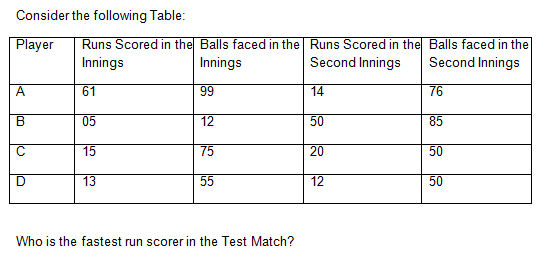Question
Which of the following is an example of an intangible
asset?Solution
Intangible assets are non-physical assets that lack a physical substance but hold value for a company. A patent is an exclusive right granted for an invention. Patents benefit inventors by providing them with legal protection of their inventions.A patent is an intangible asset because it doesn't have a physical form, but instead provides long-term value to the owner.Unlike tangible assets such as land, buildings, and machinery, patent is not a physical asset but is crucial in assessing a company's overall worth.
Consider two Statement and a Question :
Statement - 1: Priya is 4 ranks below Seema and is 31st from the bottom.
Statement - 2: En...
A man completes 7/8 of a job in 21 days. How many more days will it take him to finish the job if quantum of work is further increased by 50%?
X and Y run a 3 km race along a circular course of length 300 m. Their speeds are in the ratio 3:2. If they start together in the same direction, how m...
The increase in the price of a certain item was 25%. Then the price was decreased by 20% and then again increased by 10%. What is the resultant increas...
Consider the following multiplication problem:
(PQ) × 3 = RQQ, where P, Q and R are different digits and R # 0.
What is the value of...
In the English alphabet, the first 4 letters are written in opposite order; and the next 4 letters are written in opposite order and so on; and at th...

What is the value of X in the sequence 20, 10, 10, 15, 30, 75, X?
Consider the following statements :
1. The sum of 5 consecutive integers can be 100.
2. The product of three consecutive ...
A person X wants to distribute some pens among six children A, B, C, D, E and F. Suppose A gets twice the number of pens received by B, three times tha...
Relevant for Exams:



